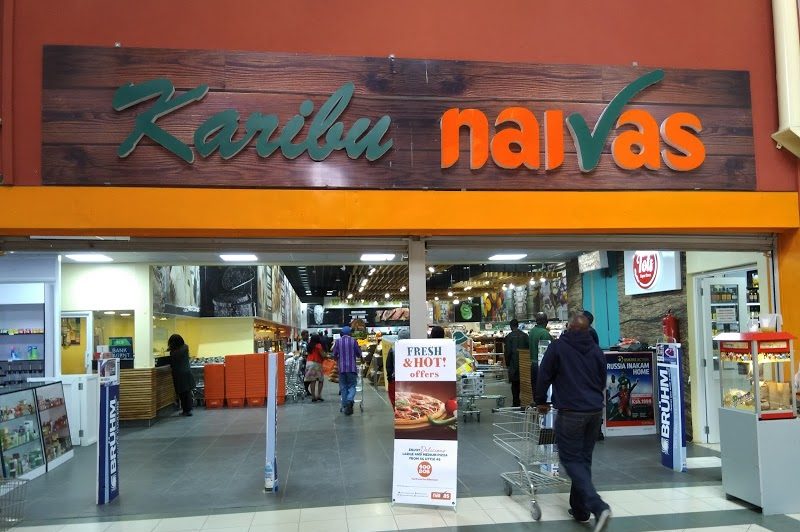The Kenya Revenue Authority (KRA) is seeking Sh1.79 billion in taxes from Naivas, reportedly accruing from the 31.5 percent stake sale in the top supermarkets chain in 2020.
The taxman has accused the retailer of structuring the deal in Mauritius to avoid taxes in Kenya, which prompted it to move to the tax tribunal.
The heirs of Naivas’ founder, the late Peter Mukuha Kago, sold the shares to Amethis Retail — a consortium which comprised International Finance Corporation, German fund DEG and private equity firms Amethis and MCB Equity Fund.
The KRA said the family, through its investment vehicle Gakiwawa Family Investments, received Sh5.2 billion in the deal which was structured in Mauritius to allegedly avoid taxes in Kenya.
The change in shareholding occurred in Naivas International which in turn fully owns Kenya-based Naivas Limited – the operating business.
“In a layered and complicated scheme involving holding companies and subsidiaries, KRA unearthed a scheme to avoid payment of corporation tax in Kenya,” the taxman said in a press statement.
“The assessment emanated from the 2020 sale of a [31.5 percent] minority stake in Naivas International Limited (Mauritius) to Gakiwawa Family Investments [GFI].”
Naivas is now required to pay the corporation tax assessed at Sh1.79 billion, inclusive of penalties and interest after its appeal at the Tax Appeals Tribunal was dismissed, said the KRA.
The taxman said it appointed Naivas Limited as the tax representative of the Mukuhas’ investment vehicle.
The retailer objected to KRA’s tax demand, arguing that it was not the tax representative of Gakiwawa. It further added that there was no nexus between the business and its shareholders and the retailer would therefore not be in a legal and practical position to carry out any obligations as Gakiwawa’s tax representative.
“It was, however, revealed by KRA and ruled by the Tax Appeals’Tribunal that although the Gakiwawa is incorporated in Mauritius, the control and management of the holding company that owns Naivas Supermarkets is exercised by its directors who are Kenyan, in Kenya,” the taxman said in the statement.
The tribunal listed the directors of Gakiwawa as David Kimani Mukuha, Grace Wambui Mukuha, Linet Wairimu Mukuha and Simon Gashwe.
All these directors, the tribunal noted, are Kenyans and tax residents in Kenya.
“That the enquiry is not from where GFI is controlled from, but as to where the business of GFI is controlled,” said the tribunal which was chaired by Eric Nyongesa Wafula.
The transaction that has attracted the tax demand is among several that were initiated by the family to reduce their ownership in the retailer, earning billions of shillings.
In June last year, the Amethis Group and the Mukuhas sold a combined 40 percent stake in Naivas to a consortium led by Mauritius-based conglomerate IBL Group for $151.97 million (Sh21.8 billion at current exchange rates).
The shares sold in the deal included an additional 8.5 percent stake that the family sold for $32.29 million (Sh4.6 billion).
The money was spent on fuelling the retailer’s growth across the country, with the ownership of the Mukuhas falling to 68.5 percent but becoming more valuable.
IBL recently announced plans to buy an extra 11 percent stake in Naivas from the Mukuhas in a transaction estimated at $41.7 million (Sh5.9 billion).
Naivas has bucked the trend of other major supermarkets, including Nakumatt and Tuskys, whose founders refused to relinquish control to outsiders.
Established in 1990, Naivas has grown to become the largest supermarket chain in the country with more than 84 stores and employing 8,000 people as of June 2022.
Its growth came amid stumbles by its rivals such as Nakumatt Holdings, Uchumi Supermarkets and Tuskys, which went bankrupt due to large debt or mismanagement.
Other recent challengers such as Massmart and Shoprite of South Africa closed their operations after failing to gain traction in the competitive formal retail market.
Carrefour and Quickmart are among the supermarket chains that have continued to expand alongside the dominant Naivas.



